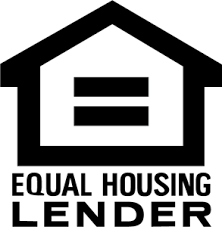Bouncing back: Buying a house after job loss, divorce or debt.
Key takeaways:
- You can still buy a house, even if you’ve experienced a financial setback.
- Get a clear picture of your credit score and all of your debt, then build a budget.
- Once you’ve started rebuilding your credit, you can start exploring home-buying options.
Many people experience a financial setback at one time in their lives or another, whether it’s from job loss, a divorce, or declaring bankruptcy. But it’s still possible to buy a home after financial difficulties. Follow these steps to improve your credit and get back on the path to homeownership.
Get a clear picture of your financial situation.
The first step is to collect everything you need to understand how much debt you have along with an accounting of any assets.
- Check your credit score for free on AnnualCreditReport.com opens in a new window (the only federally authorized source for your full credit report).
- Identify all outstanding debts you have, including credit card debt, auto loans, student loans, medical debt, personal loans and tax debt.
- Create a realistic budget that allows you to manage monthly expenses, pay down your debt and, if possible, start saving for a down payment.
Start rebuilding your credit profile.
There are a number of things you can do to improve your credit score.
- Always pay on time: payment history is the most important factor in your credit score, making up 35% of the score. Set up auto-pay or reminders so you never miss a bill, because even one late payment can impact your score.
- Keep your credit utilization below 30%: for credit cards, make sure that your balance is below 30%, and ideally close to 10%. An even better way to improve your score is to pay credit card balances off in full each month.
- Keep old credit cards active: older credit accounts can boost your average age of credit, which makes up 15% of your score. Unless there's a high annual fee you can’t justify, keep them open and active with small recurring charges (like a streaming subscription or utility bill).
- Ask for a credit limit increase: if your income has gone up or your payment history is solid, request a higher credit limit. This lowers your utilization rate instantly; just make sure you don’t spend more.
- Use rent or utility reporting services to add on-time rent or bill payments to your credit file.
- Space out hard inquiries like new credit card applications or auto loan inquiries — too many in a short time can ding your score.
Begin exploring home financing options.
Once you’ve gotten a handle on your debt and are making progress on your credit score, reach out to a mortgage professional who can offer guidance for your particular situation. Commerce Bank offers loan options including low and no-down payment loans.
- If you have a good credit history but don’t have savings for a downpayment, you can still buy a home. Talk with a mortgage banker about your options.
- If you’re relocating for a new job, you may be able to close on a home prior to starting the job.
- If you’re getting divorced, your spouse may be required to sign documentation. If you’ve already filed for divorce, you’ll need to provide either the separation agreement with a property settlement agreement signed by a judge or the final recorded divorce decree before your loan will receive final approval.
- If you’ve requested forbearance, or pause in payments, for an existing home loan, there may be a waiting period involved before you can apply for a new mortgage. One of our knowledgeable Mortgage Bankers can help once you share the specifics of your situation.
If you’re interested in learning more about Commerce’s mortgage products, you can get more information online or contact our Mortgage Team at 844-340-2574 or allthingsmortgage@commercebank.com.


